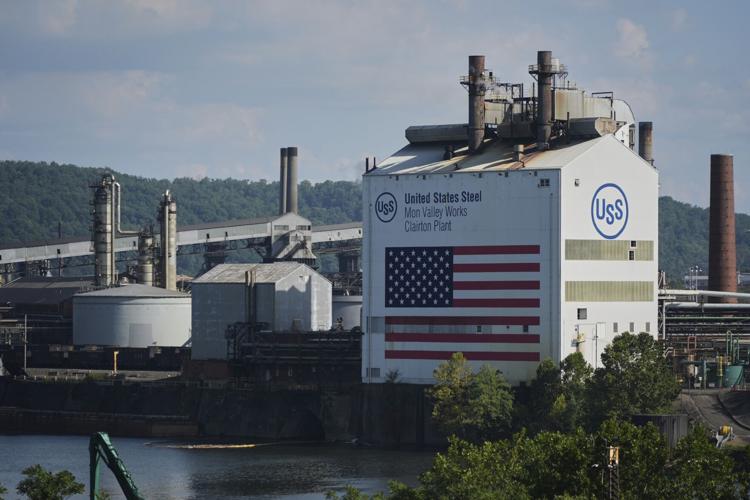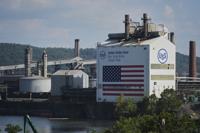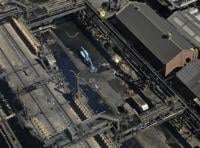The Pennsylvania county where an explosion at a U.S. Steel plant south of Pittsburgh killed two people and injured more than 10 others announced Thursday that it is stepping up air quality monitoring in the area of the sprawling facility that has a troubled environmental record.
The Allegheny County Health Department announced that mobile air units provided by the state and Carnegie Mellon University will be stationed in the Mon Valley where the plant is Thursday and Friday. The county said these measures are part of its ongoing investigation into Monday's explosion at Clairton Coke Works.
The county said the measures go “well beyond the normal and rigorous regulatory air quality monitoring” and will assess parts of the valley for different types of pollutants such as volatile organic compounds, PM2.5 pollutants and sulfur dioxide.
After Monday’s blast, the county health department initially told residents within 1 mile (1.6 kilometers) of the plant to remain indoors and close all windows and doors. The department lifted the advisory after its monitors didn’t detect levels of soot or sulfur dioxide above federal standards.
The Allegheny County Medical Examiner’s Office also confirmed Thursday that the second person who died in the blast was Steven Menefee, 52, of Clairton. Earlier, the county medical examiner’s office identified one of the dead as Timothy Quinn, 39.
U.S. Steel CEO David Burritt said Tuesday the company is working closely with local, state and federal authorities. He would not speculate about the cause of the explosion.
The massive plant along the Monongahela River in Clairton converts coal to coke, a key component in the steelmaking process. The facility is considered the largest coking operation in North America and is one of four major U.S. Steel plants in Pennsylvania.
To make coke, coal is baked in special ovens for hours at high temperatures to remove impurities that could otherwise weaken steel. The process creates what is known as coke gas — a lethal mix of methane, carbon dioxide and carbon monoxide.
The plant has a long history of environmental problems, especially fouling the air in communities nearby the sprawling plant.
In 2018, a Christmas Eve fire damaged pollution-control equipment and led to repeated releases of sulfur dioxide, according to a subsequent lawsuit. The fire prompted Allegheny County to warn residents to limit outdoor activities. Residents said it was hard to breathe for weeks afterward and that the air felt acidic and smelled like rotten eggs. U.S. Steel settled a lawsuit last year with an agreement to spend $19.5 million in equipment upgrades and $5 million on local clean air efforts and programs.
Dr. Deborah Gentile, the medical director of Community Partners in Asthma Care, studied asthma levels after the 2018 fire and found twice as many patients sought medical treatment.
In 2019, U.S. Steel agreed to settle a lawsuit regarding air pollution from Clairton for $8.5 million.
The concerns about air quality also come as the federal Environmental Protection Agency moves to postpone new hazardous air pollution standards for coke plants, like Clairton.
Matthew Mehalik, executive director of the Breathe Project, a public health advocacy group in Pittsburgh, said the regulations were deemed to be almost insignificant to operational costs and would have helped protect the public with air quality monitoring.
The regulation would have required — like is already required at refineries all over the United States — fence-line monitoring for hazardous air pollutants at the Clairton plant, Mehalik said.
That information would have been “incredibly useful” when the explosion happened on Monday, Mehalik said.
Associated Press writer Marc Levy contributed to this report from Harrisburg, Pennsylvania.









